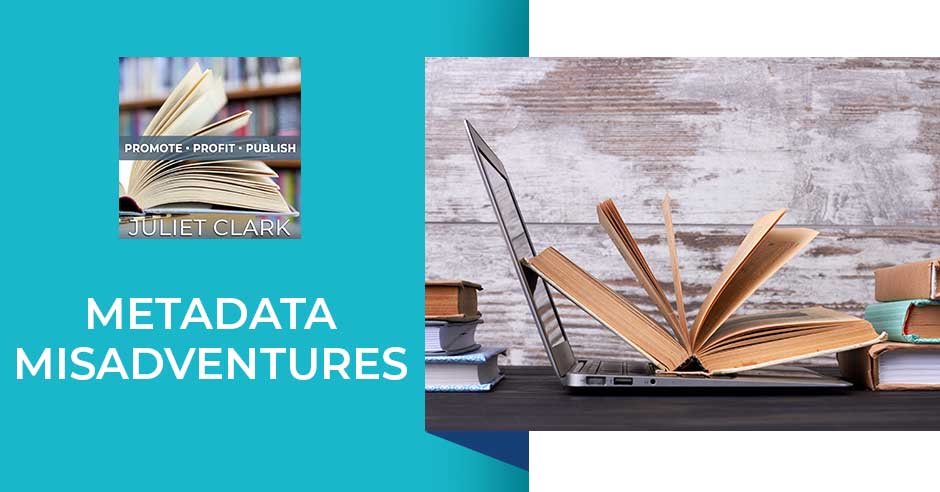
Self-publishing has experienced a recent surge in popularity, largely due to economic factors. While it may seem like a viable option given the current economic climate, it’s essential to ask yourself: Do you possess sufficient knowledge about the process? Are you truly saving money or potentially creating a public display of your work? Join Juliet Clark in this short but interesting episode covering metadata misadventures and more.
—
Watch the episode here
Listen to the podcast here
Metadata Misadventures
Is Self-Publishing For You?
In this episode, it’s just me, but I have some important things to say to you. Before we get started, remember to grab your free copy of Breakthrough Author Magazine, which you can find at BreakthroughAuthorMagazine.com. Once you sign up, you’ll have it dropped into your in-basket on the first of every month. Lots of tips and tricks on publishing, platform building, marketing and all those things. For those of you who think that writing the book is the hard part, you are in for a big surprise.
That’s a little bit about what we’re going to talk about in this episode. It’s being able to self-publish your own books. We’re seeing a lot of it lately because of the economy. People are trying to save money, but some things that you have to consider is do you know enough. Are you saving money or are you making a spectacle of yourself?
Here’s why. I’ll explain. I’ve had an engineer as a client and that engineer has a specialty, let’s say, building airplane parts, which it is. He’s not an expert at publishing and I’m not an expert at building airplane parts. While you may understand or think you understand everything that is entailed in the publishing industry, chances are you don’t. There are people who do know who are judging your output and what you’ve done.
I’ll give an example. I may be able to speak to the aeronautical engineer who builds those parts, but I don’t think there’s any point where he would invite me to build the parts. Secondly, I don’t think there’s any universe where you would get on the plane where I had built the parts for the inside of the plane. You can see that the analogy is the same with the publishing world. If you don’t know what you’re doing, chances are your output is not going to be great. If you’re thinking of writing subsequent books, you could be in real trouble because people looking at your book and at your audience and considering a publishing contract are going to have all those numbers from that first book.
They’re going to be able to pull it out. They’re going to be able to see did you publish on Amazon? Did you publish on Ingram? They’re going to be able to look at the inside and see, “Does that mean the page looks professional or does it not?” Does it have everything it needs or does it not? There are a lot of things there that you need to know. What I’m going to cover are most of the things that I see right now where there is a big failure on this, but before I go there, we have a sponsor. I’m excited.
We have two sponsors. Let’s cut to the chase on this whole living forever thing. Ever wonder why some folks age like fine wine and others look like they’ve got an expiration date that’s coming soon and they probably shouldn’t hit their age? That’s because they’ve got the energy of a toddler on a sugar high. Where do they get that? They get that from LifeWave. LifeWave is a product that is holistic. I love it. I use it myself. That’s how I ended up being a sponsor.
It is a patch. You put the patch on your body for about twelve hours every day, and there are different patches. There are patches for sleeping. I prefer the X39 because it builds stem cells back. If you’re as athletic as I am at 63 years old, everything hurts all the time. I’d love to have you try something very holistic. You can get rid of the ibuprofen or whatever it is you use. You can get rid of all that and live a pain-free life. You can do that. Check it out. If you’re ready to reclaim your youth, strut around like a boss and heal as fast as a superhero, you’re going to love this. You can schedule a free consultation over at Calendly.com/TheFoolishCouple/Superbrand. Check out LifeWave X39 and see if it’s for you. I can personally vouch for the fact that when I use it, I am pain-free.
What You’re Publishing Vs What Standard Versions Look Like
Back to the publishing. I’m seeing more and more of the people self-publishing, and then they’re bringing us their books to fix. I’m going to start with what are you publishing and what does the standard versions look like? One of the things that happened was a new client had written a fiction novel, and she released it on Kindle, softcover and hardcover over Amazon. Amazon does not have a way to truly put together a fiction hardcover the way it looks. What they do is called case laminate, which looks like a children’s book.
If you’ve ever bought a book for your child or even a journal where it has that very hard cover and then you open it up, they are pretty durable, but it’s that case laminate cover that is the big deal. The first thing I said to this woman who brought it to me was, “That’s not what a fiction hardcover looks like.” You want a laminate with a jacket. That’s what we did. We went back, released it, and put together the publishing package that looked right for that.
She now has a hardcover that is a real hardcover with a jacket. Why is that important? She has a serious plan. What we’d like to do is for her to be able to build the audience for this series, which will get her a proposal and a real book contract next time with a real publishing company, a traditional one. In order to do that, they’re going to look at the book she has on the market and they’re going to see that it wasn’t published well. No skin off her. You don’t know what you don’t know. One of the big things we see is the version that you’re publishing in industry standard. Is it something that, if it had been done by a publishing company, would look the way you’re publishing?
Let’s move on to the second part of that, the ISBN page that goes inside. She didn’t have an LCCN, the Library of Congress Control Number. She didn’t have all of the ISBNs listed. Those are little things that you don’t know when you don’t know them, either. You’re supposed to have the name of a publishing company in there with an address. That’s what the Library of Congress wants to see. That book, if it’s not registered, doesn’t go into the Library of Congress. One of the things we went back again and did was collect all of our ISBNa and apply for a Library of Congress Number.
That 1st or 2nd page past the title that you open now looks professional. If you’re on Amazon and you’re using that look inside feature, which everyone should be using so you can get a little taste of the book, that’s the first thing they’re going to look at. They’re going to open it up and see, “This page isn’t right. This is somebody who didn’t publish professionally.”
On to other things, metadata. We went in and changed all of her metadata as well when we republished. She has already been published with the softcover and the Kindle download on Amazon. We went and changed where she published that hardcover. We went ahead and had to put it through Ingram lightning source for her, but that opened up a whole new bunch of possibilities. Let me explain.
One of the things that Amazon has are categories. Categories are not based on publishing industry standards. What does that mean? Amazon has taken algorithms. They’ve taken purchase stats. They’ve done a whole bunch of things and they’ve created 16,000 categories. When you self-publish with Amazon, you don’t have access to BISAC codes, which are the industry standard. What they give you are tried and true categories that have sold on Amazon. Is that a good thing or is it a bad thing? If you’re trying to get an Amazon bestseller, it can be a good thing. We had a client \where we asked them to open up new categories because the book didn’t fit.
Needless to say, when you’re the only one in a category, you can get to number one pretty quickly, but that’s not what we want. We want to sell books. If it is something where a category could be useful, I’m going to give you a great example. After 2020, DE&I, all of the things that happened in 2020, we started to see more Black categories, African-American categories, and African categories. That’s a good thing. What we did with James’ book is we asked them to open some new categories under Black spirituality, Black religion and things that weren’t in there before but definitely should be because we’re seeing more and more of those books.
That is the Amazon sign. If I pull up a book and look at the hardcover softcover and see Amazon-only categories and no BISAC codes, I know that you publish this yourself. If it’s right or wrong, it’s not a big deal, but I’m going to know that I’m dealing with someone who’s going to try to tell me that they know what they’re talking about and chances are they don’t.
What are BISAC codes? BISAC codes are industry standard codes that the publishing industry uses. There are far less than them. you do have to dig deep into the categories. If you’re publishing on an Ingram or a lightning source like we do, then chances are you’re given the opportunity for three of those BISAC codes. When your book comes up on Amazon, it has the standard codes.
Here’s the other thing I’m going to tell you about that. If you’re out in the media, and let’s say you’re working with Jackie Jordan, one of our TV media specialists, she’s going to prepare a book one sheet for you. That book is going to have BISAC codes on it[MM1] . I’ve been to her workshop. I can’t remember if I went with the producers there. When you tell the producers you’re an Amazon bestseller, “These are my three categories,” they’re going to laugh you off.
They probably aren’t going to take you for that interview. The reason is they’re looking at that one sheet and they’re saying, “This is a self-published book. There’s too much manipulation that can go on and we’re not going to take this person as an expert.” It is important when someone looks inside or looks at that product description and sees BISAC codes instead of categories.
Here’s the other. When we have a hybrid book and put the ebooks through CoreSource, CoreSource gives us the opportunity for a lot more BISAC codes. The BISAC codes and the categories are how people can find you. When they search, it’s a combination of that and keywords. If they’re searching and you are not in the right place, they’re not going to find you, and that’s why we love it.
We like it because we have thirteen different codes. We can put thirteen different possibilities for people to find them. That’s why that is important. Now, next, metadata. Keywords. You can use some AI. We use AI now to grab the keywords for books. We do it for ads and the keywords that we put into the platforms. Amazon’s going to ask you for seven keywords. LS and CoreSource is going to ask you for keywords. Think about that. Three platforms. I have the possibility for a lot of keywords. If you remember, when it goes out to the distributors, they’re all connected together.
I can click on a hardcover and get one set of BISAC. I can click on a soft cover, another, and click on the eBooks, and I have a whole different set. You’re maximizing your metadata by doing that. The reason why I love AI in this process is because when I ask you guys what your keywords are, a lot of times, I don’t get what I get from AI. AI is looking at your book and evaluating if you have those keywords in your book. Can you see how that would be important? If people are putting in and searching by keywords and remember Amazon, more than anything, is a search engine. If you’re doing this by keywords and those keywords in your ad, if they’re in your book, or if they’re put in there, Amazon’s going to pick them up because that’s what they do best.
Keywords Matter
Your keywords matter and having those keywords on as many platforms as possible matters and making sure they’re the right keywords matters as well. A lot of times, what happens is the book developer will go back and the keywords will come later and that’s where the keywords that you give us don’t match what AI that scanned your book came up as the keywords in the book. Remember, when you’re on Amazon, you can put keywords on the ad, but it’s also looking at the algorithm, which is what is in the book. It scans the book. The next thing I want you guys to be aware of is whether your keywords are your keywords because that’s how people find you.

Metadata Misadventures: Your keywords matter, and having those keywords on as many platforms as possible and making sure they’re the right keywords matters as well.
Last but definitely not least, when you’re putting together ads, ads on Amazon is your best way to do this because they will only charge your card when someone has purchased. Those keywords are very important for ads. When you run them through the AI software, make sure that they are there. We have AI software now that we can run your book through and look at what you came up with as a back cover copy, which is part of the algorithm as well and what AI said your back copy should look like.
There are a lot of tools out there right now that can help you. What is most important and all of this is that you get it right if you choose to self-publish. Is self-publishing the way to go for some people? Maybe. It depends on what you want your book to be about. If your book is a nurture tool for your business, then you want it as professionally polished as possible. Probably, more than likely, the keywords that you’re putting in that book, the description, all of those platforms, those BISAC codes, and everything else are probably the same, leading to those big ticket items that you have on the other end. Remember, that book is a nurture tool. It’s an introduction to you.
Your book is a nurture tool. It's an introduction to you. Click To TweetA lot of people have the same information that they teach, and when I know for myself and probably my clients as well, they hire based on how they resonate. If those keywords or that personality resonate with you and how you come across them in your book, chances are they’re going to explore those big-ticket items. Those big-ticket items are important because most people do not get ROI from their books. Whether it’s soft publishing or hybrid publishing, they do not get the ROI back from the book. The ROI is going to come from where you lead them next.
Thank you all for stopping by. It’s short and sweet, but I want you to know the pitfalls out there because we’re seeing many people that come to us after the fact with book marketing that we’re taking a hard look at. We’re saying, “You got to get this book right before you get out there and market it because right now, you’re not marketing your best product.” See you next episode.
Important Links
Love the show? Subscribe, rate, review, and share!

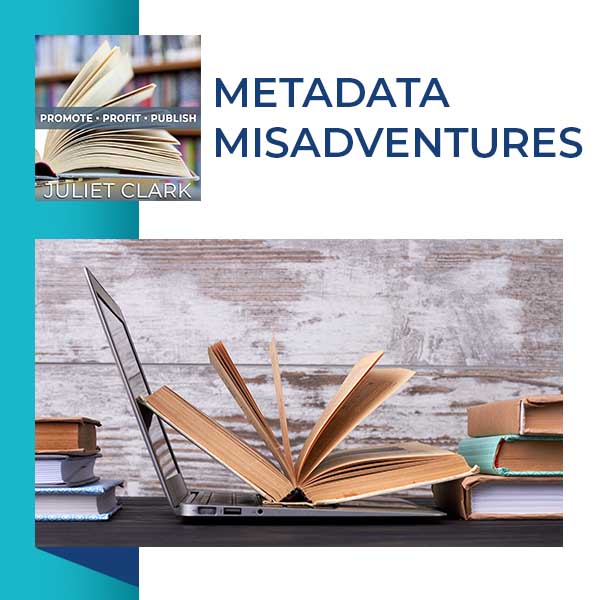
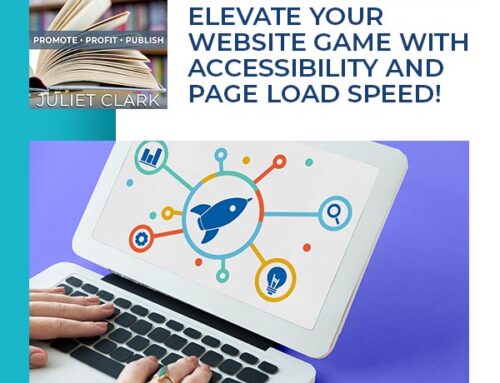
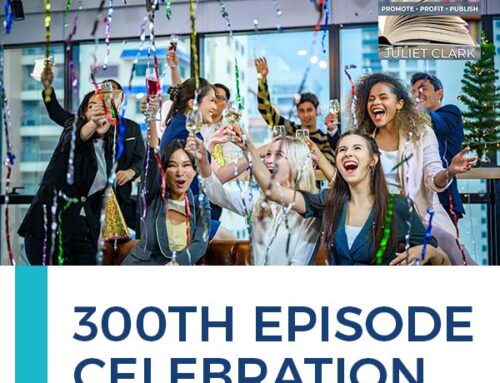
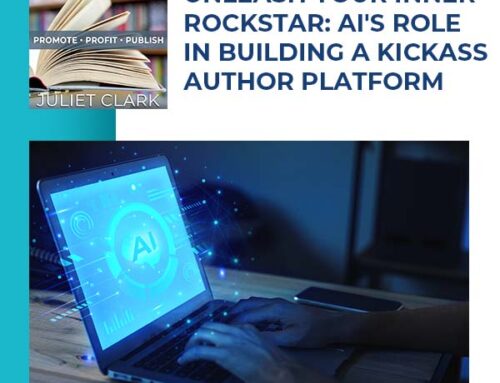
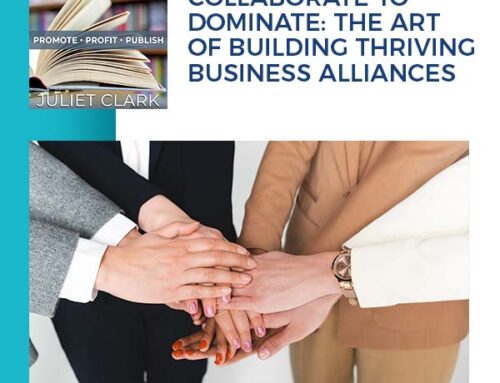



Leave A Comment